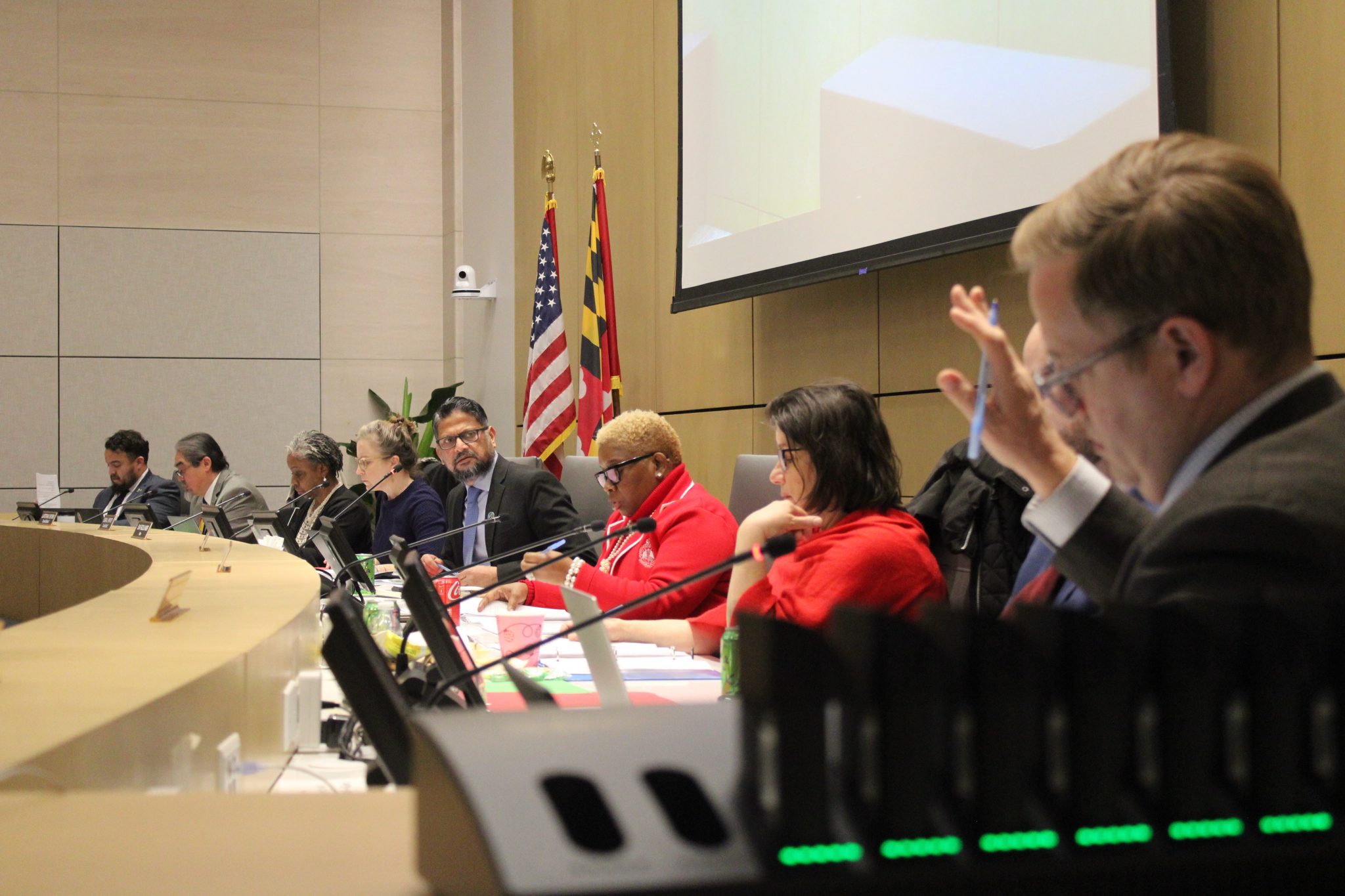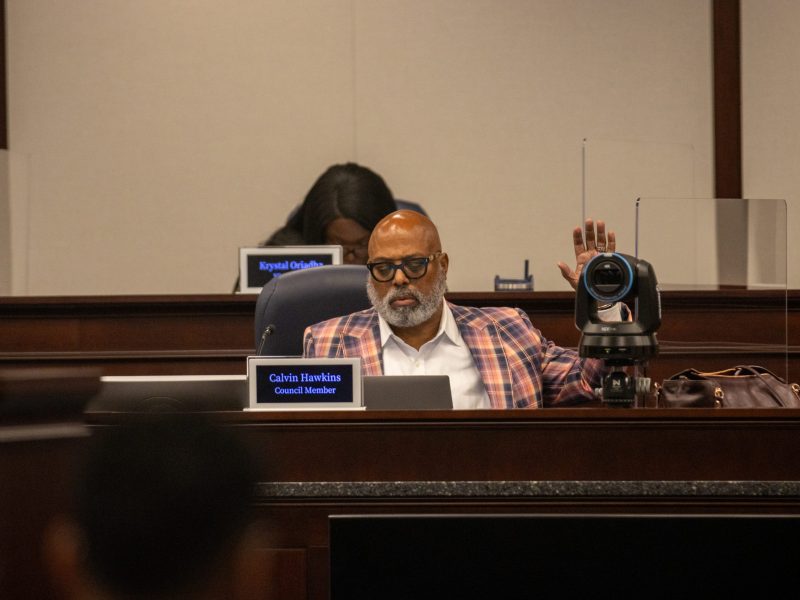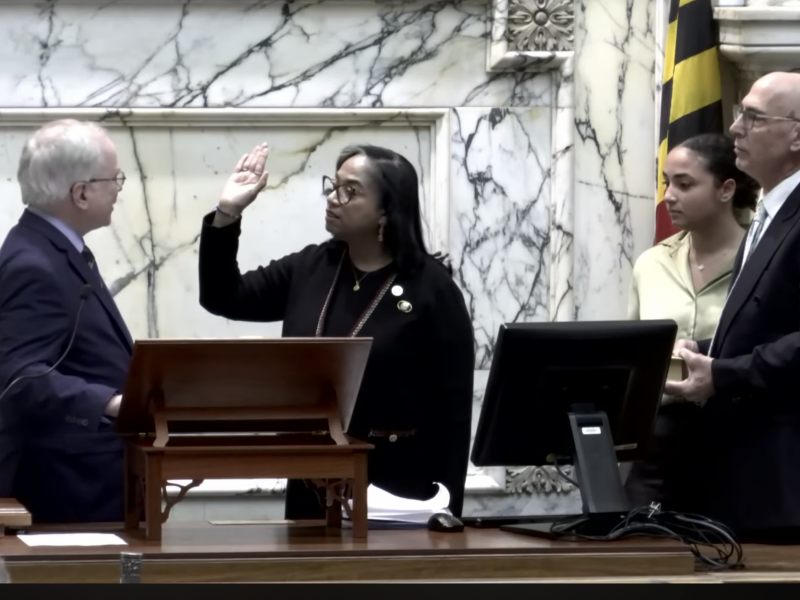Disclaimer: Current student liaison Dhruvak Mirani is a former Diamondback opinion columnist.
The College Park City Council considered modifications to the city’s proposed student housing subsidy pilot program and formed a vacancy and blighted property tax committee on Tuesday.
The initial proposed housing subsidy program sought to provide about 150 eligible University of Maryland undergraduate students with a $1500 subsidy for some off-campus College Park apartments. The city council discussed potential changes to the program Tuesday that would increase the number of grant recipients and loosen eligibility requirements.
While the individual subsidies are still estimated to be at $1,500, the city is considering increasing the number of grants to 200.
In the program’s initial proposal, the rental subsidy only applied to undergraduate students at this university who qualify for a Federal Pell Grant. But the city council discussed adding income-based qualifications for any household in the city below 40 percent or 60 percent of the area median income.
The city council is considering changing the name of the student rent subsidy pilot program to the rental assistance grants pilot program to better “align with the full vision of the program,” according to Mayor Pro Tem Denise Mitchell, the rental assistance grants pilot program subcommittee chair.
Despite the proposed expansion for program eligibility, which now includes all eligible city residents, District 3 council member Stuart Adams said the program still fulfills the initial goal of assisting students.
“We target certain demographics for programs all the time and so this is another example of that,” Adams, a subcommittee member, said.
[College Park City Council decides vacancy tax subcommittee’s initial responsibilities]
Funding for the program will come from the city’s three-cent tax increase on apartment, commercial and industrial properties for the 2024 fiscal year.
The online application process will require applicants to select either Federal Pell Grant or income-based eligibility and upload a copy of their signed lease.Grant recipients will be selected through an equitable lottery, Mitchell said.
The final subcommittee report will be presented to the entire city council on March 19.
During Tuesday’s meeting, the city also established a vacancy and blighted property tax committee and determined its composition.
Vacant and blighted properties are commercial, industrial and residential properties that have become a public nuisance, or pose a threat to public safety, due to long periods of vacancy. The properties include unused lots, single-family homes and abandoned buildings.
The committee will aim to reach a consensus on a definition for what constitutes a vacant and blighted property in the city. The committee will also consider if the terms “vacant” and “blighted” should be combined or have separate definitions when applied to city properties.
The committee was originally planned to consist of five members with one member appointed by each district and one member appointed by the mayor.
[College Park City Council considers temporarily closing Hollywood Farmers Market]
But student liaison Dhruvak Mirani and deputy student liaison Gannon Sprinkle said students should have a voice in the committee and pushed for the ability to be able to appoint a student to the committee.
“There are students who would argue that properties they’re renting could be considered blighted even though they’re actively in use,” Mirani said. “There are plenty of different scenarios in which that tax could directly affect a student.”
Ultimately, the city council made five appointments to the council Tuesday as stated in the initial proposal. But the city council granted Mayor Fazlul Kabir the ability to appoint two additional members, which could include students.
District 4 council member Maria Mackie said she is intrigued by the possibility of students being appointed to the committee by council members.
“We’ve had some wonderful students on committees in the past and I would like to encourage that,” Mackie said. “There’s a lot they can add.”
But College Park resident Maxine Gross emphasized students should not receive preferential treatment and be differentiated from residents in committee appointments. Every city resident must be considered equal, Gross said.
Like Gross, District 1 council member Jacob Hernandez hoped any additional committee appointees would be qualified for the role, rather than the product of preferential treatment.
“These are folks that understand the issue well with their experience,” Hernandez said. “Should we go through with this and increase [the number of subcommittee members we should] not just give preferential treatment to one, but really focus on the experience.”



